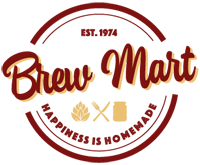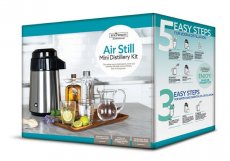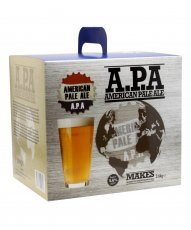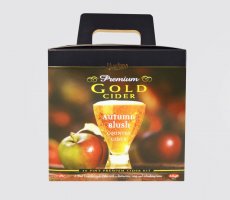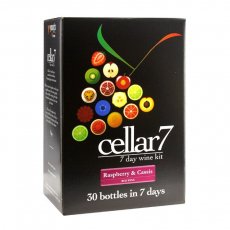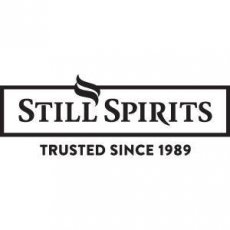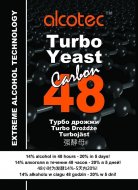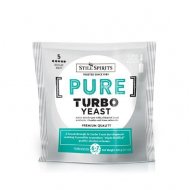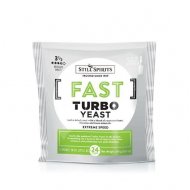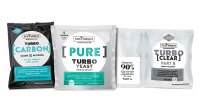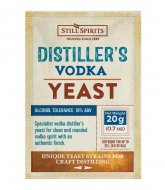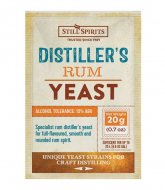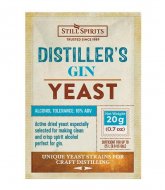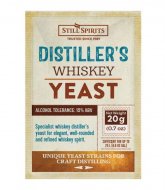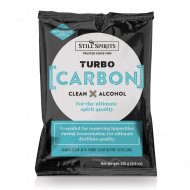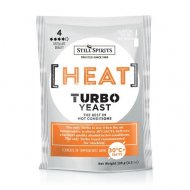Sign up to the Brew Mart newsletter for the latest news, offers & more
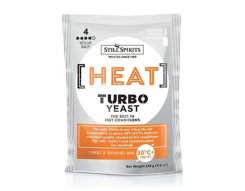
Spirit Yeasts
Brewing and Distillers Spirit Yeasts
Choosing the correct type of spirit yeast is paramount to producing quality liquor. It can make all the difference between a flavourful full-bodied sipping whiskey that highlights the best qualities of the raw materials that went into the mash.
Brew Mart has many different distillery yeasts for alcohol making for you to buy.
Some are designed for purity, others for strength, and some for specific uses.
The best yeast for distilling spirits will reach at least 20% ABV.
The highest brewing and distilling yeasts will reach 23%.
Most yeasts for distilling alcohol are general purpose. However, there are some specifically for fruit-based spirits, some for rum and so on.
What is Spirit Yeast, and Why is it Important?
Spirit yeast is a fungal single-cell microorganism used to produce the wash that gets distilled into the final spirit.
The primary function of yeast is to metabolise the sugars contained in the mash into ethanol and certain by-products.
Spirit producers might be interested exclusively in the ethanol aspect of this process.
It would be wrong to discard the by-products altogether, as these can significantly impact the final quality and flavour of the spirit, in many ways determining the type of the spirit coming out of the still.
The Different Types of Spirit Yeasts
The brewing and distilling yeasts used for different types of fermentation, including spirit yeasts, mainly belongs to the same species, Saccharomyces cerevisiae.
Included in Saccharomyces cerevisiae, there are thousands of different strains, each with individual properties that make it more useful for a particular task.
Things like
1. Maximum liquor tolerance,
2. Optimal fermentation temperature,
3. Ability to process different types of sugars,
4. The production of aroma and flavour compounds
These elements will all determine the character and quality of your wash, and each yeast strain will fall into a broad spectrum when analysed by these criteria.
Several groups of strains are prevalent for spirit production due to their properties.
Most importantly, these usually share high liquor tolerance that translates into more liquor obtained with the wash, which is very useful for distilling high proof spirits.
Here's an overview of the best types of yeasts.
Turbo Yeast
Turbo yeast is a great choice when you don't have much time for a lengthy wash production. Add up a very high liquor tolerance of 20-23% ABV, and you get a very reliable and straightforward yeast t with which you can work.
The downside, however, is that Turbo tends to produce a very dry and neutral flavour wash, which isn't particularly good for full-bodied spirits like corn whiskey or rum.
Bread Yeast
Bread yeast is often considered the best type for producing full-bodied and flavourful spirits, such as rum or whiskey, where you need the original sugar flavours to transit into the final product.
Among the downsides are lower liquor tolerance and longer fermentation times, especially when compared to Turbo yeast.
Champagne Yeast
Champagne yeast is a variety known for high liquor tolerance, fast fermentation, and dry finish. Not particularly useful for producing flavourful spirits, it is still quite popular with clear spirits such as vodka, especially when using fruits in the mash.
Distillers Yeast
Low price and excellent availability, high liquor tolerance and fast fermentation make generic distillers yeast a perfect choice for producing various types of spirits. Although, your results may vary significantly depending on the types of sugars used for making the wash.
Is Brewer's yeast the same as distillers yeast?
Distiller's yeast has several characteristics that are different from brewer's yeast:
Whiskey yeast tends to be more efficient than brewer's yeast in converting sugar into alcohol.
Whiskey yeast typically ferments at a hotter temperature than ale yeast.
To learn more about how to make specific spirits, please see our blog and recipe suggestions area of our website.
